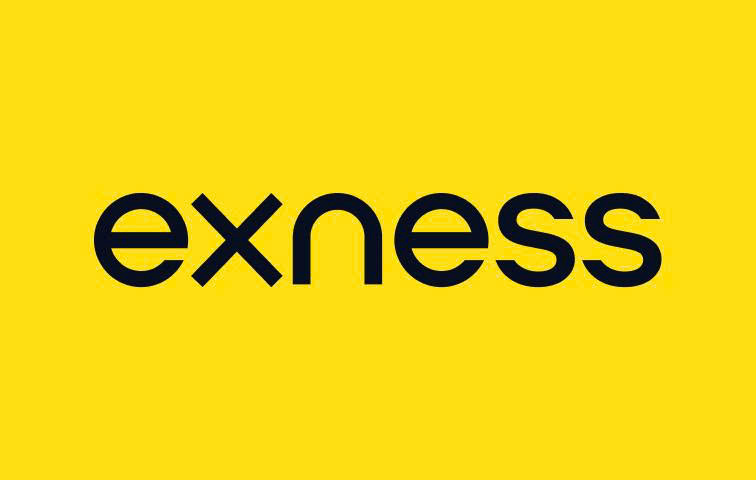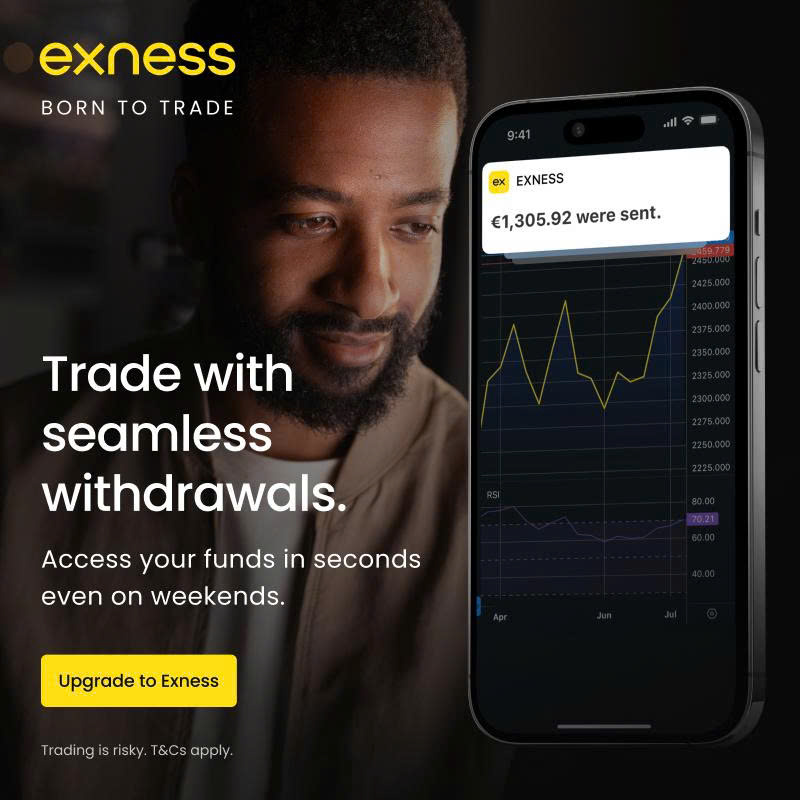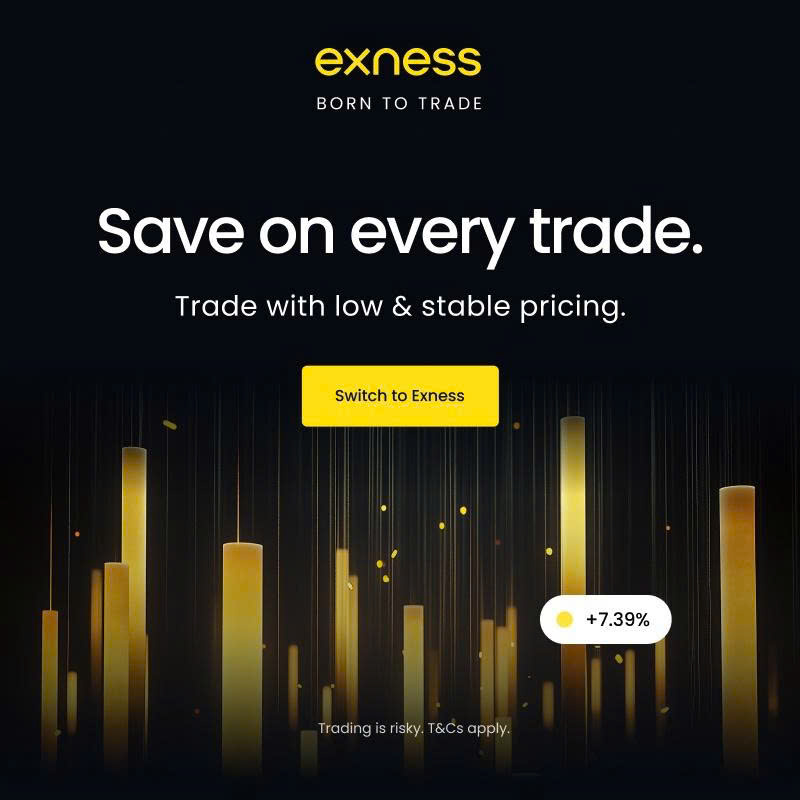
9 minute read
Is Exness Regulated in Pakistan? A Comprehensive Guide for Traders
from Exness
by Exness Blog
Forex trading has surged in popularity across Pakistan, with traders seeking reliable platforms to access global financial markets. Among the many brokers available, Exness stands out as a globally recognized name, offering a wide range of trading instruments, competitive spreads, and advanced platforms. However, one critical question looms large for Pakistani traders: Is Exness regulated in Pakistan? Understanding the regulatory status of a broker is essential for ensuring the safety of funds and compliance with local laws. In this comprehensive guide, we will explore Exness’s operations in Pakistan, its regulatory framework, the legal landscape for forex trading in the country, and key considerations for traders.

💥 Trade with Exness now: Open An Account or Visit Brokers 🏆
What is Exness? An Overview of the Broker
Founded in 2008, Exness is a globally acclaimed forex and Contracts for Difference (CFD) broker headquartered in Cyprus. Over the years, it has built a strong reputation for transparency, fast trade execution, and user-friendly platforms like MetaTrader 4 (MT4), MetaTrader 5 (MT5), and its proprietary Exness Trader. Exness offers access to a diverse range of financial instruments, including forex pairs, commodities (e.g., gold, oil), indices, cryptocurrencies, and stocks. Its competitive features, such as low spreads, high leverage, and instant withdrawals, make it appealing to both novice and experienced traders.
Exness operates under multiple entities worldwide, serving millions of clients across Europe, Asia, Africa, and beyond. Its commitment to innovation and client satisfaction has earned it numerous awards, positioning it as a leading choice in the forex industry. However, for Pakistani traders, the key question is whether Exness operates legally and safely within the country’s regulatory framework.
The Regulatory Framework for Forex Trading in Pakistan
To determine whether Exness is regulated in Pakistan, we must first understand the country’s financial regulatory landscape. Forex trading in Pakistan is overseen by two primary authorities:
· Securities and Exchange Commission of Pakistan (SECP): The SECP is the main regulatory body responsible for supervising capital markets, including securities, commodities, and forex trading. It enforces compliance with the Securities Act, 2015, and the Companies Ordinance, 1984, ensuring transparency and investor protection. However, the SECP’s jurisdiction primarily covers local brokers, and its oversight of international brokers like Exness is limited.
· State Bank of Pakistan (SBP): As the central bank, the SBP regulates foreign exchange activities under the Foreign Exchange Regulation Act (FERA), 1947. It monitors currency transactions, including those related to forex trading, to prevent illegal activities such as money laundering and capital flight. The SBP allows forex trading through authorized dealers or banks but imposes restrictions on capital outflows and leverage for retail traders.
While forex trading is legal in Pakistan, the regulatory framework is somewhat ambiguous for offshore brokers. The SECP and SBP focus on local financial institutions, leaving international brokers like Exness to operate under their home jurisdictions’ regulations. This creates a grey area for Pakistani traders, who must ensure compliance with local laws when trading with offshore platforms.
Is Exness Regulated in Pakistan?
Exness is not directly regulated by the Securities and Exchange Commission of Pakistan (SECP) or the State Bank of Pakistan (SBP). This means it does not hold a specific license to operate as a registered forex broker in Pakistan. However, this does not imply that Exness is illegal or unsafe for Pakistani traders. Exness operates as an offshore broker, offering its services to Pakistani residents through its global entities, which are regulated by several reputable international authorities. These include:
· Financial Conduct Authority (FCA), UK: The FCA is one of the most stringent regulators globally, enforcing high standards for transparency, client fund protection, and operational integrity. Exness (UK) Ltd is authorized under FCA license number 730729 but does not offer retail services.
· Cyprus Securities and Exchange Commission (CySEC): Exness Europe Ltd holds a CySEC license (178/12), ensuring compliance with European Union financial regulations, including client fund segregation and transparency.
· Financial Sector Conduct Authority (FSCA), South Africa: Exness is regulated by the FSCA, which oversees financial services in South Africa, adding another layer of credibility.
· Financial Services Authority (FSA), Seychelles: Exness (SC) Ltd operates under FSA license SD025, serving clients outside the European Economic Area (EEA), including Pakistan.
· Financial Services Commission (FSC), Mauritius and British Virgin Islands: These licenses allow Exness to cater to international clients under strict compliance standards.
· Capital Markets Authority (CMA), Kenya: Exness (KE) Limited holds a non-dealing forex broker license (162), further expanding its regulatory footprint.
These international licenses ensure that Exness adheres to global standards for financial security, transparency, and client protection. For instance, Exness segregates client funds from company assets, undergoes regular audits by firms like Deloitte, and maintains transparent reporting of trading volumes and client activity. However, Pakistani traders should note that protections offered by regulators like CySEC or FCA may not directly apply to them, as these are region-specific.
Is Exness Legal in Pakistan?
The legality of trading with Exness in Pakistan hinges on the broader context of forex trading regulations. Forex trading is permitted in Pakistan, provided traders comply with SBP guidelines on foreign currency transactions. These include using authorized banks or dealers for deposits and withdrawals and adhering to capital transfer limits. Since Exness is an offshore broker, it is not subject to direct SECP or SBP oversight, but Pakistani traders can legally use its services as long as they follow local financial regulations.
A key point to clarify is whether Exness is banned in Pakistan. There is no official ban on Exness in Pakistan. A 2022 claim suggested that the SBP declared Exness illegal due to concerns over margin trading and CFD activities, but this information appears outdated or unverified. Current sources confirm that Exness operates legally in Pakistan, and traders can access its services without restrictions, provided they comply with SBP and SECP guidelines.

💥 Trade with Exness now: Open An Account or Visit Brokers 🏆
Benefits of Trading with Exness in Pakistan
Exness offers several advantages that make it an attractive choice for Pakistani traders, despite its lack of local regulation:
· Robust Regulatory Oversight: Exness’s licenses from FCA, CySEC, FSCA, and others ensure a high level of security and transparency, even for offshore clients. Regular audits and fund segregation provide peace of mind.
· Competitive Trading Conditions: Exness is known for low spreads, unlimited leverage (in some jurisdictions), and fast execution, which are ideal for traders seeking cost-effective strategies.
· User-Friendly Platforms: Exness supports MT4, MT5, and its proprietary Exness Trade App, offering advanced charting, automation, and mobile trading capabilities.
· Localized Support: Exness provides 24/7 customer support in multiple languages, including Urdu, and accepts payments in Pakistani Rupee (PKR) via local bank transfers, VISA, MasterCard, and other methods.
· Diverse Instruments: Traders can access forex pairs, commodities, cryptocurrencies, and indices, allowing portfolio diversification.
These features make Exness a compelling option, but traders must weigh them against the absence of local regulation.
Risks of Trading with an Offshore Broker like Exness
While Exness is a reputable broker, trading with an offshore platform in Pakistan carries certain risks:
· Limited Local Recourse: Since Exness is not regulated by the SECP, Pakistani traders may face challenges seeking legal recourse in disputes, as local authorities have no jurisdiction over offshore brokers.
· Currency Exchange Risks: Fluctuations in the Pakistani Rupee (PKR) can affect profits and withdrawals when trading with an international broker.
· Leverage Risks: Exness offers high leverage, which can amplify both gains and losses. Pakistani traders must manage leverage carefully, as the SBP imposes restrictions on leverage for retail traders.
· Tax Compliance: Forex trading profits in Pakistan are subject to taxation. Traders must report earnings to comply with local tax laws to avoid legal issues.
To mitigate these risks, traders should conduct thorough due diligence, verify Exness’s regulatory status on official websites (e.g., FCA, CySEC), and ensure compliance with SBP and SECP guidelines.
How to Verify Exness’s Regulatory Status
Pakistani traders can take the following steps to confirm Exness’s legitimacy:
· Check Regulatory Websites: Visit the websites of FCA, CySEC, FSCA, or FSA to verify Exness’s license numbers and compliance status.
· Review Exness’s Official Website: Exness provides detailed information about its licenses and regulatory commitments at exness.com.
· Contact Customer Support: Exness’s 24/7 support team can clarify regulatory details and provide guidance for Pakistani traders.
· Research User Reviews: Platforms like Traders Union offer insights into Exness’s performance and client satisfaction in Pakistan.
Alternatives to Exness for Pakistani Traders
For traders concerned about Exness’s lack of local regulation, several SECP-registered brokers offer similar services, such as FXTM and OctaFX. These brokers are regulated locally, providing an additional layer of security and dispute resolution mechanisms tailored to Pakistan’s market. However, they may have higher fees or fewer features compared to Exness. Traders should compare brokers based on spreads, leverage, platform features, and regulatory status to find the best fit.
Tips for Safe Forex Trading in Pakistan
To trade safely with Exness or any broker, Pakistani traders should follow these best practices:
· Educate Yourself: Learn about forex market dynamics, risk management, and trading strategies to make informed decisions.
· Use Authorized Channels: Conduct deposits and withdrawals through SBP-approved banks or dealers to comply with foreign exchange regulations.
· Start with a Demo Account: Exness offers free demo accounts to test strategies and platforms without risking real funds.
· Monitor Leverage: Use leverage cautiously to avoid significant losses, especially given SBP restrictions.
· Stay Tax Compliant: Report forex profits to the relevant authorities to avoid legal complications.
Conclusion: Is Exness a Safe Choice for Pakistani Traders?
Exness is not directly regulated by the SECP or SBP in Pakistan, but it operates legally as an offshore broker under stringent international licenses from the FCA, CySEC, FSCA, and others. These regulations ensure a high level of transparency, fund security, and operational integrity, making Exness a reputable choice for Pakistani traders. However, the lack of local oversight means traders must exercise caution, comply with SBP guidelines, and understand the risks of trading with an offshore broker.
For Pakistani traders, Exness offers a compelling combination of competitive trading conditions, diverse instruments, and reliable platforms. By conducting due diligence, managing risks, and adhering to local laws, traders can leverage Exness’s services to participate in the global forex market confidently. If you prioritize local regulation, consider SECP-registered brokers as alternatives, but Exness remains a strong contender for those comfortable with its international regulatory framework.
💥 Note: To enjoy the benefits of the partner code, such as trading fee rebates, you need to register with Exness through this link: Open An Account or Visit Brokers 🏆
Read more:

